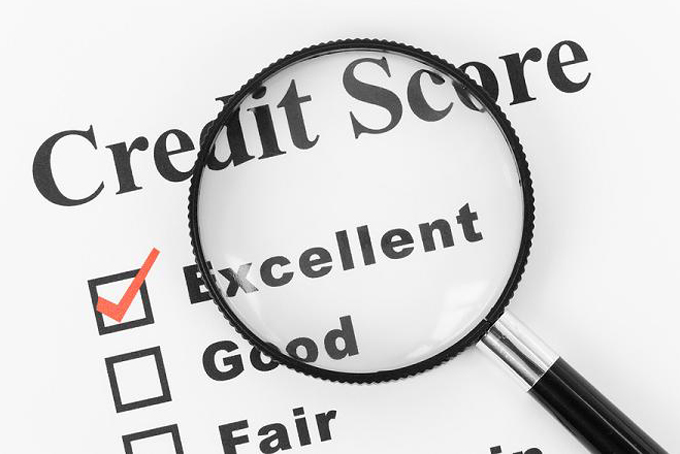
by Blake Ellis
Your credit score can make or break your financial future.
Not only is it used to determine whether you’re creditworthy enough to open a credit card, land a mortgage, rent an apartment or get an auto loan, but it also plays a big factor in the interest rate you qualify for.
There are multiple credit scores out there, but the most common is your FICO score, which ranges from 300 to 850. A score of 780 or above is considered excellent and will land you the top deals available, while a 720 to 780 is strong but may not qualify you for the best rates, says John Ulzheimer, president of consumer education at SmartCredit.com.
A 680 to 720 means you’re likely to get approved for credit but not likely to qualify for the most favorable rates, while having a 680 or lower will make it hard to get approved for credit at all, and any credit you do get will come with sky-high interest rates.
To avoid this bottom rung, steer clear of these common credit mistakes:
Carrying big balances
Carrying piles of debt is never a good idea. Keeping a big balance on a credit card can increase your credit utilization ratio, which is the percentage of your credit limit that you use. Together with other measurements of your overall debt, this ratio accounts for about 30 percent of your credit score.
The ratio is calculated using the end-of-month balance that appears on your bill, meaning that your score can suffer even if you pay off your balance every month. To keep your debt utilization ratio in check, Bill Hardekopf, president of LowCards.com, recommends using less than a third of your credit limit.
Closing credit cards
It may seem like the responsible thing to do, but closing a credit card account can actually hurt your credit.
That’s because it lowers the amount of credit you have available to you—which can then hurt your debt utilization ratio (unless you don’t carry any balance on your credit card).
The length of your credit history is also factored into your credit score, so keeping a credit card open also helps with that.
“Keep it open and charge a sandwich once a month just to have activity, and then pay it off each month,” said Hardekopf.
But if it’s just too tempting to have so many credit cards in your wallet, get rid of the one with the lowest credit limit, Ulzheimer recommends.
Paying late
Your payment history is one of the biggest factors lenders look at and makes up approximately 35 percent of your FICO score—so late payments on credit cards, student loans, mortgages or even doctor’s bills can all bring down your score if the company reports it to the credit bureaus.
“One or two isn’t going to be significant but if it’s habitual it’s going to hurt you,” said Barrington.
Defaulting
The most obvious credit no-no is defaulting on a loan or credit card, which means you fail to pay back the amount owed to a lender. The biggest hits come from declaring bankruptcy or foreclosing on a home, which can easily slice 100 points or more from a credit score.
“Anything that can be classified as defaults on obligations are the bombshells that are going to leave a giant smoking crater on your credit,” said Barrington.
Opening too many credit lines
While having some credit is good for your score, there is such a thing as too much.
Each time you apply for a loan or credit card, the lender makes an inquiry into your credit history, which usually knocks off several points from your credit score.
Applying for multiple credit cards or loans or increasing your overall available credit can also be a red flag.
“If you’re continually adding to your potential credit, credit companies are going to look at that as a risk that you could become overextended at some point,” said Barrington. “So if you’re one of those people who can’t say no when a credit card offer arrives in the mail, this could drag down your credit [score].”
Not having a credit card
A growing number of Americans are ditching credit cards as they turn to debit and prepaid cards instead. But while this may keep you safe from debt, it’s not going to help your credit score.
Without any credit history, you’re typically considered unscoreable, meaning there isn’t enough activity on your credit file to calculate a score. This leads many lenders to deem you too risky to take a chance on, said Ulzheimer.
“It’s like walking into a job interview with an empty resume,” said Ulzheimer. “[A lender] would have to roll the dice on you to give you credit—and that’s not a good position for you to be in.”
It also hurts the diversity of your credit file, which accounts for 10 percent of your score and rewards you for having experience managing different kinds of credit—like credit cards, mortgages and auto loans.
Your comments are welcome,
Follow us at twitter.com/ADWnews
Like us at facebook.com/atlantadailyworld
